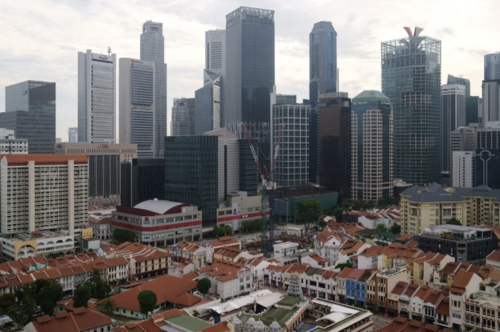Consulting the Wealthy to Remedy Wealth Inequality in Singapore?

Consulting the Wealthy to Remedy Wealth Inequality in Singapore?
Singapore, with its low tax rates and exemptions, is a haven for the wealthy, attracting those such as Eduardo Saverin, Facebook’s co-founder, to James Dyson, the founder of the vacuum cleaning giant Dyson. Singapore recognizes that such an influx of wealth could potentially exacerbate wealth inequality, adversely affecting local residents. An article by the South China Morning Post highlights current housing difficulties triggered by the COVID-19 pandemic, saying that the Housing Development Bureau price index has risen for 14 straight months as well as demand, making typically affordable housing unavailable and unaffordable (Kor & Koh, 2021). In addition, Singapore is expected to see a 62% rise in millionaires, with the current 270,000 millionaires in 2020 turning into 437,000 millionaires by 2025 (Karve, 2021). Singapore’s millionaire density in 2020 was 5.5%, making it the second-highest in Asia and the 11th highest in the world (Karve, 2021).
An article published by Bloomberg delves into the country’s strategy on handling its tax regime and wealth disparity concerns. Reported by Joyce Koh and Faris Mokhtar, the article states that in attempts to address the wealth disparity, Singapore must expand levies on the rich. Officials have been meeting officially (in feedback sessions) and unofficially (over meals) with the business elite and ultra-wealthy to gauge their thoughts and concerns. The government is treading lightly as talks of increased tax rates “has the potential to roil the city’s wealthiest families and spook foreign ultra-rich investors” (Koh & Mokhtar, 2021). In addition to consulting the rich, the Ministry of Finance regularly “consults academics, industry professionals and analysts on different aspects of fiscal policy” in order to ensure “wealth taxes are effective, progressive and competitive” (Koh & Mokhtar, 2021). The stance that the Singaporean government is seemingly taking is attempting to quell resentment among the public but to appease the wealthy enough so that they are not driven out of Singapore.
I thought this article was interesting as per our discussion on Singapore in class and people’s perceptions on Singapore as a cold and corporate country rather than as an open, friendly home. Many articles published about Singapore are about the massive influx of wealth and multimillionaires into the small country, which may feed the narrative that Singapore is detached from the lay person’s lived experience.
Sources: